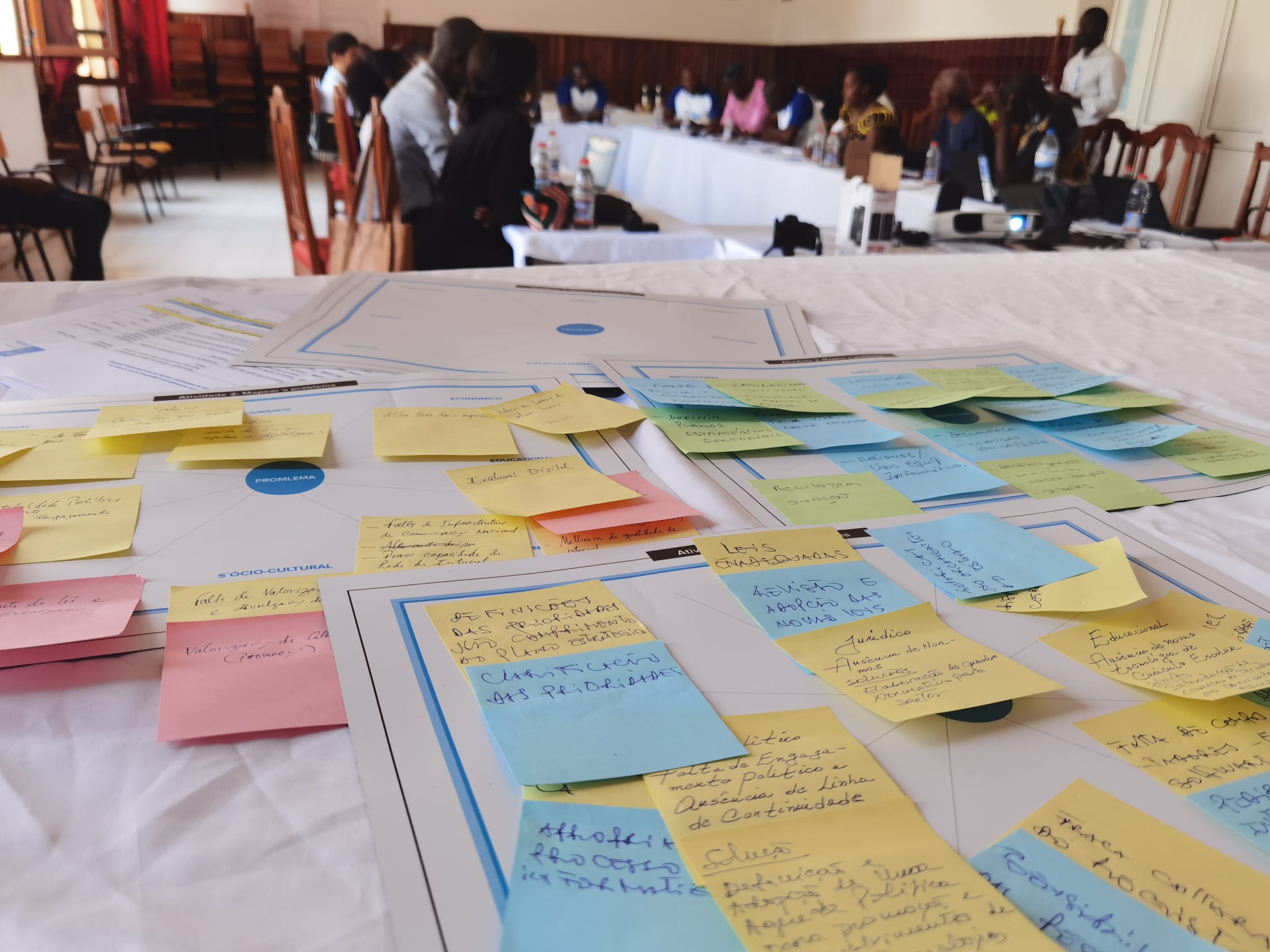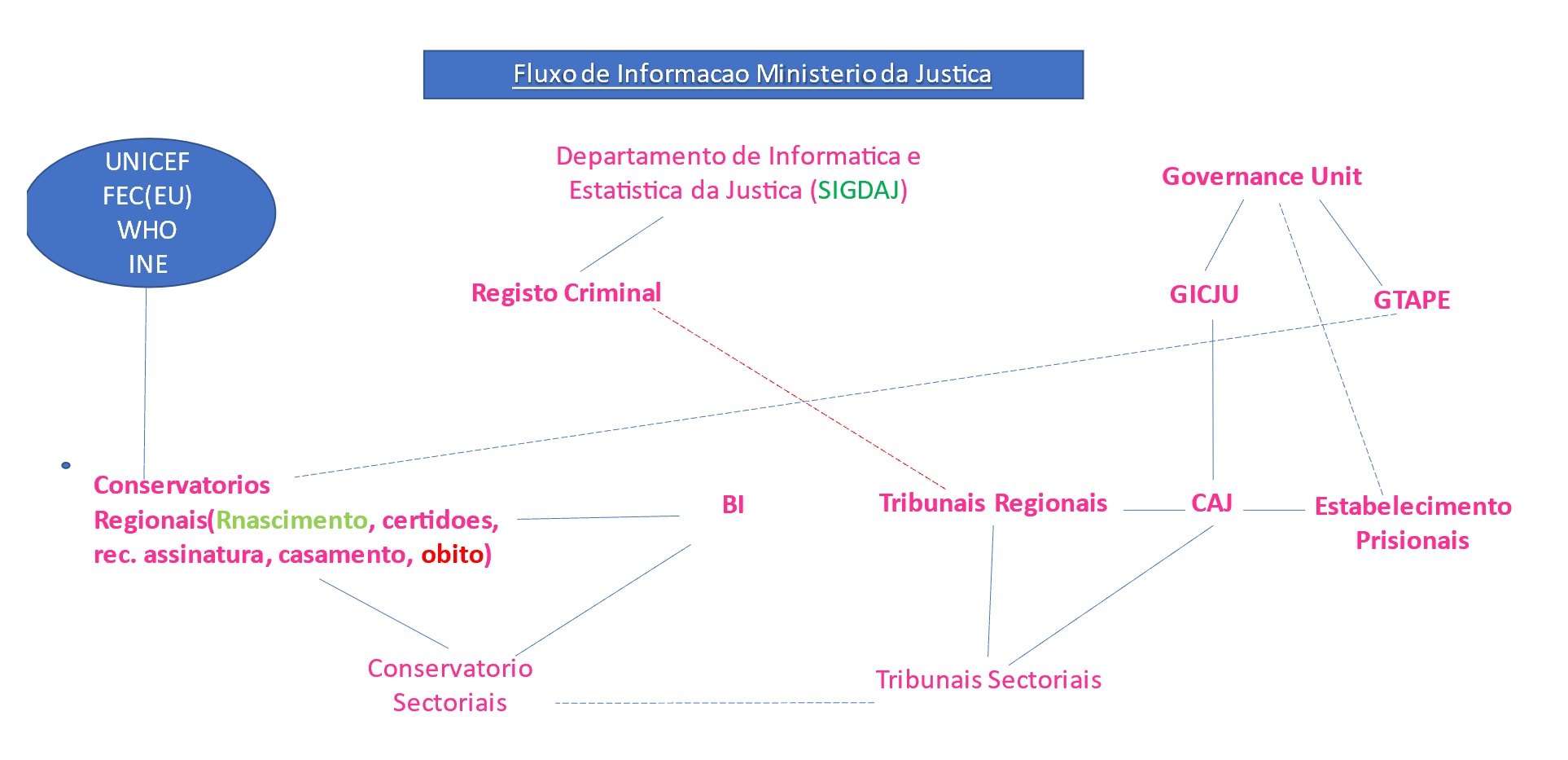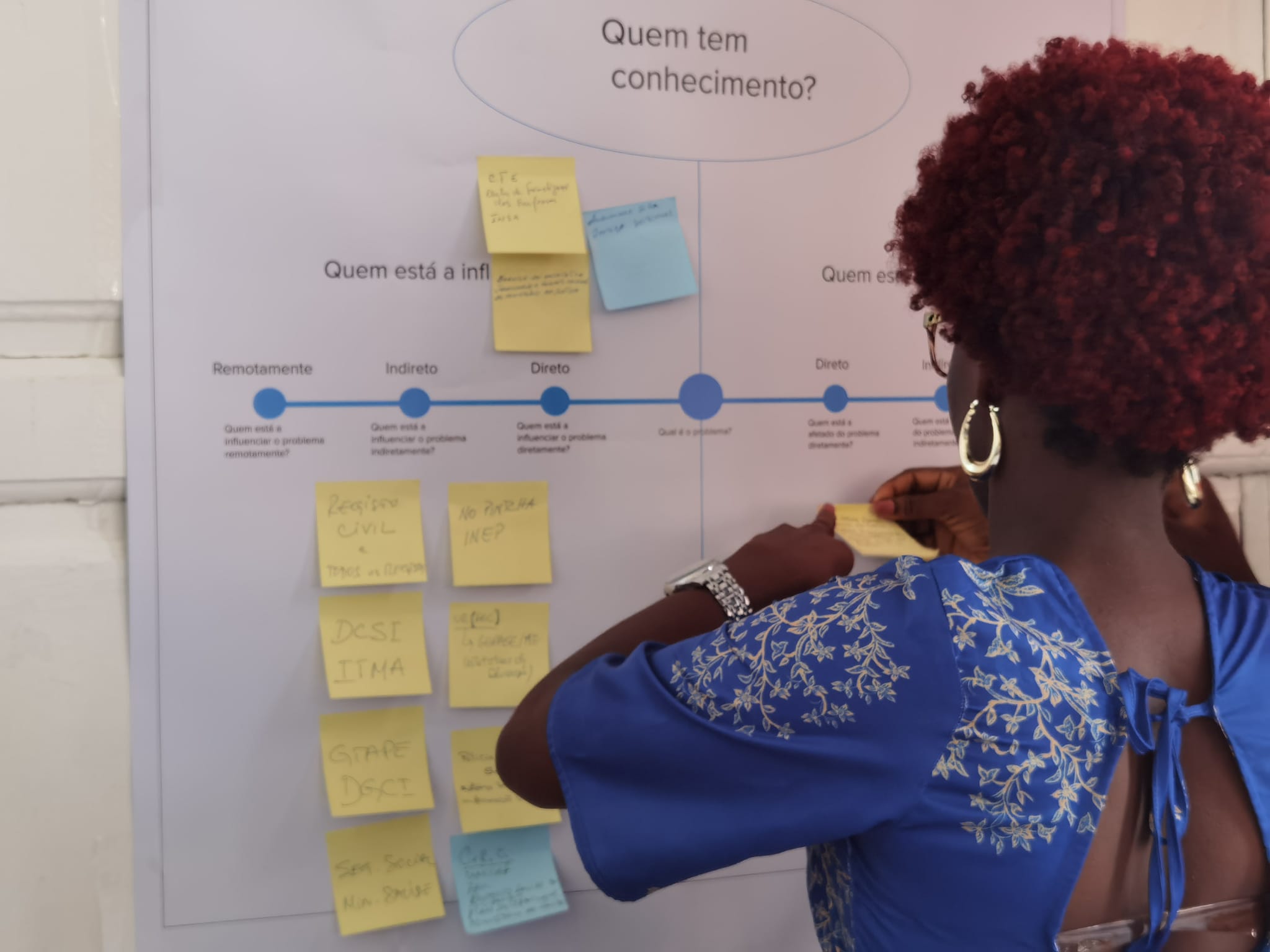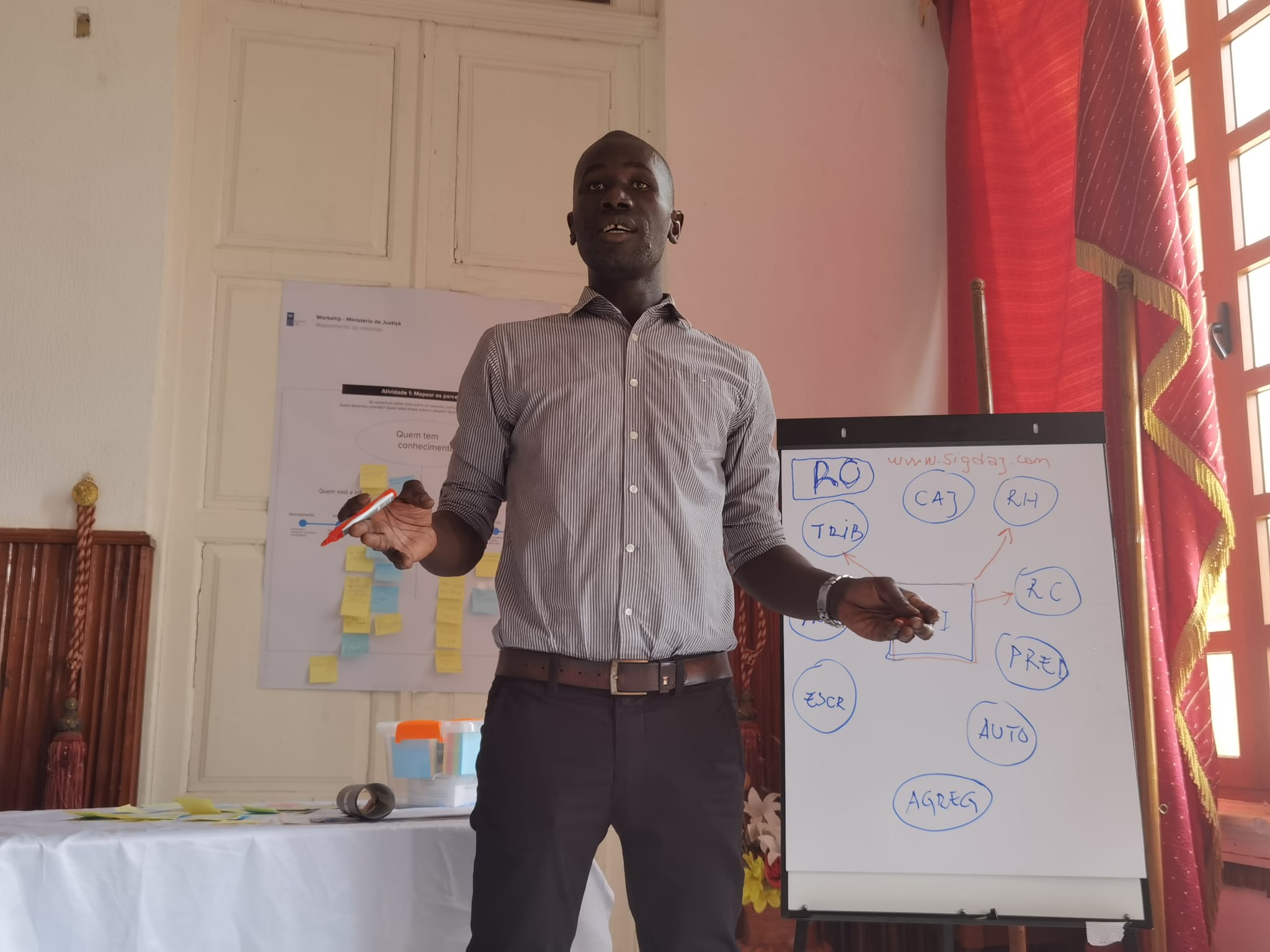E-Justice in Guinea-Bissau – Going digital can improve access to justice
March 3, 2023

The 2030 Agenda calls for equitable access to justice for all, ensuring access to information and building effective, accountable, and inclusive institutions at all levels. These have been identified as global priorities and accelerators of sustainable development. UNDP's Strategic Plan 2022-2025, which is aligned with the 2030 Agenda, prioritises digital transformation as a key strategy to advance development goals and protect human rights.
As in many other contexts, public services have gained a lot from digitalisation, most prominently during the peak period of transmissibility of COVID 19. Through the introduction of ITC technologies, the Government of Guinea Bissau, with the support of partners including UNDP, has been able to increase the level of accessibility to information and thus improve the delivery of public services. Since 2020 the UNDP Accelerator Lab Guinea Bissau has been focused on “Improving Access to Public Services” as its frontier challenge, and the last couple of months the Lab, together with the UNDP Democratic Governance Cluster, in close collaboration with the Department of Informatics and Statistics of the Ministry of Justice and Human Rights (MoJ), have worked towards improving the quality of the data accessed by the Ministry.
Collective Intelligence - Getting smarter together
Through a Collective Intelligence workshop with officials and users from the Ministry of Justice, UNICEF, the High Commissioner for COVID-19, and Students Associations a dialogue was opened on the functioning of the MoJ. In the workshop, there were a series of activities where the participants had the opportunity to map possible solutions to the challenges encountered at the MoJ. Looking at the synthesis, there was a strong emphasis on the area of digitalization, which guided the next steps of the Lab.

Collective Intelligence workshop synthesis
Better understanding the challenges and looking for solutions
Following the workshop, the Lab began an exploration phase to understand what already existed at the Ministry of Justice related to computerisation and digitisation. Meanwhile, an existing solution was discovered addressing some of the main challenges at the Ministry when it comes to digitization. The Justice Information and Data Management System (SIGDAJ) had been developed by the ICT Director at the Ministry to digitise the services. The system is user friendly and has the necessary components to be tested.

Diagram showing fluxes and lack of interoperability withing the different departments in the Ministry of Justice
Mapping Digital Solutions for the Justice Information System
The mapping of the existing digital solutions in the Ministry of Justice was extremely important for understanding the justice information system in Guinea-Bissau. Another workshop was organised involving all departments of the Ministry of Justice as well as other development partners:
- UNICEF: presenting RAPID PRO, a system that allows the aggregation of data at the community level of registered children, which is sent to the central level by phone via SMS.
- European Union: presenting GESTDOC, an initiative that has as one of its priorities the digitalisation and modernisation of the system for issuing identification documents.
- General Direction of Prisons Services: presenting the prisoners’ database/prison information system.
- The Judiciary Police: presenting the judicial forum website.
- The Cabinet of Judicial Review and Information: presenting the SICAJ (Information System of the Centre for Access to Justice).

Systems mapping exercise at the Ministry of Justice.
During the workshop the interoperability of the different digital systems within the Ministry of Justice became clear, and it was understood that improving the SIGDAJ solution had the potential to fill the existing gaps with the potential to act as a digital aggregator platform of all digital sub-units of the Ministry.

Amilcar Lopes presenting the information and data management system SIGDAJ during the Collective Intelligence workshop.
Digitalization processes in similar contexts
During the exploration phase, the Lab looked at how similar challenges had been faced in nearby countries and during a mission to Cape Verde, the Lab had the opportunity to explore the process of digitalization of notary services conducted in Cape Verde in 2007. The Lab visited the Núcleo Operacional da Sociedade de Informação (NOSI), Casa do Cidadão (House of the Citizen), the Ministry of Justice of Cape Verde, and the National Archive for Identification of Civil and Criminal Identification (ANICC, in the Portuguese acronym). The visits made clear how the digitalisation process took place and the ways in which similar approaches could be developed in Guinea-Bissau as well as paved way for new partnerships.
In May 2022, the Accelerator Lab Guinea-Bissau invited NOSI to visit the Ministry of Justice and Human Rights of Guinea-Bissau and share the Cape Verdean experience in the digitization of the justice sector. NOSI presented the evolution of digital governance in Cape Verde in the various sectors with special focus on the justice system: from the digitization of physical processes to the availability of services on the justice portal.
The justice portal of Cape Verde drew the attention of the director of the administration of justice of Guinea-Bissau, immediately expressing his interest in the digitization of justice services and the creation of a similar portal where Guinean users in the country and in the diaspora can request their documents online.
Lessons Learned
- Learning from a similar context + unusual partnerships
Understanding how digitalization processes have been done in similar contexts was helpful during the exploration phase. The work mission to Cape Verde, a country sharing sociocultural and colonial background with Guinea Bissau, not only walked us through the different steps the country took towards digitalization of justice services, but it also opened for new synergies and unusual partnerships with the private sector. NOSI (Núcleo Operacional da Sociedade de Informação) became one of our most crucial partners, following the future work of the Ministry of Justice, the Lab as well as the Governance Cluster. Still, it is important to note the differences between the two countries, especially in this case, the digitalization law from 2004 in Cape Verde helped the justice sector shift towards a digital service provision. In the Guinean context, UNDP also understands the importance of approving legislation that will support the changes with the MoJ and beyond. UNDP is working within its portfolio approach with several state institutions to push for legislative reform that will assist in advancing the country's digital transformation.
- Visualization is helpful when mapping the system
The exercise of mapping the existing system and visualizing it helped us understand that there are a lot of ongoing initiatives when it comes to digitalization in the Ministry of Justice, and each initiative is supported by different international organizations. Visualizing the fluxes made it clear that there is a lack of interoperability between the different initiatives, departments as well as the international organizations involved. UNDP is working on connecting the dots and becoming the connecting thread among the several partners and initiatives.
Next steps
It stands clear for everyone involved that “going digital” can improve access to justice for the Bissau Guinean population. The Accelerator Lab will work with the Ministry of Justice, the UNDP Governance Cluster and NOSI under the umbrella of E- Justice and develop a set of interventions to test what works or not.
The exploration and solution mapping phases of this cycle have demonstrated that digitalization is where the world is heading and aside from making public services better and more efficient, digital processes have the potential to change the core fundamentals of how work is done. The old “paper-based” methods cannot keep up with the current pace at which the world is evolving. The Lab wants to explore the following hypothesis:
Hypothesis 1 “IF digitization training and equipment is provided to staff of the tribunals and the Center for Access to Justice (CAJ) in the regions THEN the staff´s digital skills and attitudes towards using digital technologies will improve and data will be able to flow into SIGDAJ in a decentralized manner."
Hypothesis 2 “IF data is collected digitally THEN it will be easier to produce real-time statistics which can lay the ground for informed decision making."
Hypothesis 3 “IF the criminal register is available through an online portal, THEN… the service will be of easier access to the population."
For the results of our tests, stay tuned for the next blog in this series!

 Locations
Locations

